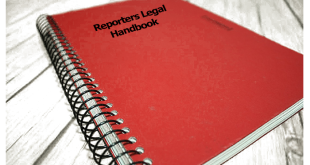Answer: A civil pleading in which a defendant admits, denies or otherwise responds to the claims made by a plaintiff in a complaint. It may also contain affirmative defenses; conclusions which state a legal basis for defeating the plaintiffs claims.
Bail: The release of a prisoner in return for the posting of monetary security to guarantee the prisoner’s appearance in court to answer charges.
Complaint: A pleading which contains civil claims and requests for damages or one which contains criminal charges against a defendant.
Condemnation: A process of taking by the state of an individual’s property upon payment of just compensation.
Damages: Money paid to compensate a plaintiff for harm done. Compensatory damages are designed to put the plaintiff in the position he or she would have been in if the harm had not occurred. Punitive damages are intended to punish the defendant for wrongful conduct.
Defendant: The person or entity against whom the allegations of a complaint are directed. That person is a defendant in both civil and criminal complaints.
Deposition: A process by which a witness’s testimony is taken under oath and recorded in an informal setting. The deposition process results in the production of a typed booklet also called a deposition or deposition transcript. Occasionally depositions are videotaped.
Discovery: The process before trial in which the parties attempt to learn the facts surrounding the case.
Ex Parte: An event which occurs based on the application of only one party. Usually done without notice, ex parte motions or applications may also be done with notice to the other side but with no opportunity to respond in writing.
Felony: A crime punishable by more than one year in a state prison.
Garnishment: A legal procedure by which the court orders that property of a debtor in possession of a third party (often wages in possession of an employer) is given to a creditor to satisfy a debt.
Grand Jury: A group of citizens whose responsibility is to investigate crimes and determine if probable cause exists to try a defendant for a crime.
Indictment: A written accusation by a Grand Jury claiming a crime has been committed by the defendant.
Injunction: An order by the court telling a person or entity to do or not do something.
Interrogatory: A series of written questions to a party which are used to determine facts about a case.
Judgment: The document produced by a court in a civil case which determines the rights and obligations of the parties. In a criminal case it officially establishes guilt or innocence, and the sentence, if any.
Jurisdiction: The power of the court over persons, land or objects.
Misdemeanor: Any crime which is not a felony. It is punishable by a fine or up to one year in a county jail.
Motion: A request to a court to take an action. A Motion must state the factual and legal basis for taking the action requested.
Negligence: Action or inaction which is different than that which would be done by a reasonable person in similar circumstances.
Objection: A statement by an attorney of the reason why he or she believes a particular item of evidence is not properly admissible, or why a particular procedure is improper.
Parole: The release of a prisoner prior to completion of a jail sentence, based on a promise to act in a certain way. If the conditions are not met the parole may be revoked.
Parole Evidence: Oral evidence offered to vary the terms of a written document.
Plaintiff and Prosecution: A plaintiff is the person who sues a defendant seeking relief in a civil case. The prosecution is the government seeking to convict a defendant in a criminal case. It is improper usage to refer to a civil plaintiff as the prosecution.
Probable Cause: Sufficient evidence to raise a reasonable belief that a person is guilty of a particular crime.
Reasonable Doubt: The standard by which a trier of fact must be satisfied before a defendant can be convicted in a criminal case. To convict there can be no reasonable doubt that a crime was committed and that the defendant is the person who committed it.
Search Warrant: A legal document issued by a judge allowing the police to search a place for certain items.
Subpoena: An order to a witness to appear to testify.
Temporary Restraining Order: An order issued under civil rules. It temporarily prohibits certain action until the court has time to make a fuller examination of the facts and to determine the applicable law.
Tort: A civil wrong not based on a breach of contract.
Venue: The proper place for a case to be heard.
Verdict: The decision of a jury.
 Nevada Press Association The best in Nevada journalism since 1924
Nevada Press Association The best in Nevada journalism since 1924


